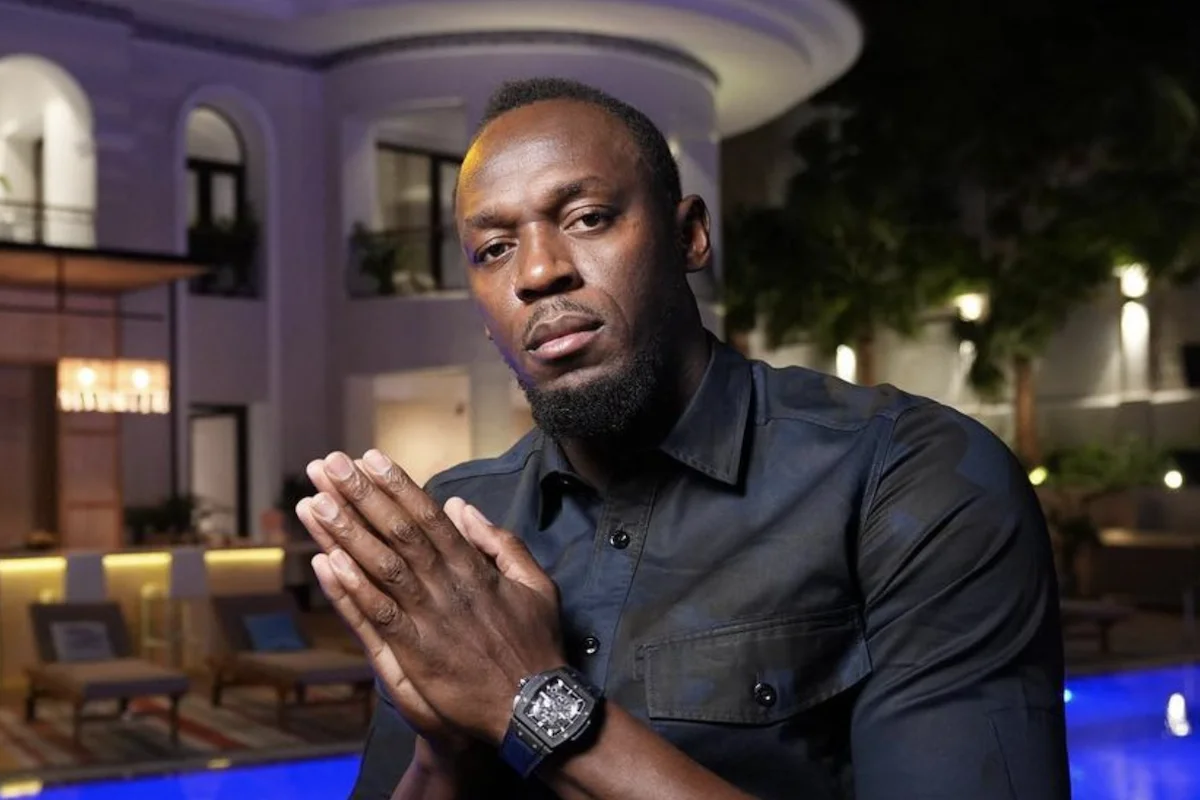As the saga that involves Usain Bolt’s missing retirement investment engulfs Jamaicans and the world, an old clip of the former Olympian explaining that he faced racism and classism in Jamaica has resurfaced.
This week, Usain Bolt’s attorneys revealed that more than U$12.7 million that he had invested at a Kingston investment firm, Stock and Securities Limited (SSL), had gone missing. The athlete-cum-producer revealed that he had last scrutinized his account at the end of October but only noticed the missing funds in December when he was left with a little over U$ 12K instead of 12 million.
The sum, just over JM$2 billion, had been lodged with the company since 2012 when Usain Bolt was then a three-time Olympian champion and was at the height of his career as his fortune changed from a poor country boy to a wealthy athlete.
Usain Bolt has been the poster boy for hard work for many ordinary Jamaicans who viewed the athlete’s life as a success story as he grew up in the poor rural countryside of Trelawny where his parents, who were farmers, worked the land to raise their children.
Bolt’s loss has hurt many Jamaicans who have called out Prime Minister Andrew Holness and others in government who have been silent since the news broke that around 40 people had been defrauded of their funds held at the institution.
Social media has heated up, with many reflecting on the terrible treatment of Bolt, with one particular interview of the artist talking about the rampant racism and classism he experienced from fellow Jamaicans going viral.
In a resurfaced interview with the late Ian Boyne on Profile, the athlete turned music producer/artist explained that despite becoming a world-famous athlete that helped to put Jamaica on the map as a track and field powerhouse, he still experienced racism because many did not think a person of his race and complexion should have the fame and wealth he has in such a short time.
“A lot,” the artist said when asked about experiencing racism or classism in Jamaica.
“People look at things as you coming up and you building yourself, a lot of people don’t want to see that. It’s just life. I’ve learnt to understand that, that not everybody is gonna appreciate what you have done,” he added.
Usain Bolt also referenced an infamous incident where the wife of Sean Paul, Jodi Jinx, told him to “go back where he came from”, after disagreements over him having his friends over.
The offensive comment was made in a community group implying that Bolt was not fit to live “Uptown,” a term that not only describes the affluent communities of Jamaica where the rich with their fancy apartments and houses reside but where only the whites, Indians, mixed and other lighter-skinned races reside, and a space that is polarizing for black Jamaicans who can only enter such circles through connections to the ultra-expensive schools where the school fees are times over what ordinary Jamaicans earn annually.
Bolt said experiencing racism and classism took him by surprise as he denied the reports that he had been creating a ruckus in the community as suggested then by Jinx, who later apologized.
“When I started out it was more shocking than anything else. When I started out, that’s how I ended up buying my house because I was living in a complex and I had issues with a few of the lighter-skinned people. I remember, I used to live next to a lawyer and I remember when I moved in, he said to me, ‘listen, be careful enuh because they don’t like to see young people strive because when I came in here they weren’t happy to see me.”
The athlete said he experienced racism in several instances that led to him deciding to buy his own home to avoid the racists.
“Them nuh too happy because them go school and work years and years fi reach and me just come up, because of sports, me get everything, me a live here and everything,” the athlete said.
“Mostly people of the upper class because the ghetto yutes and everybody else love me and them just happy fi see me,” he said, adding that he often gets praise from ordinary people for his contributions to Jamaica as an athlete.
Old Usain Bolt Profile interview clip surfaced speaking about racism and classism he experienced in Jamaica pic.twitter.com/abzHxF4ywa
— Urban Islandz (@urbanislandz) January 20, 2023
On Friday afternoon, Prime Minister Holness released a statement noting that he also felt the same sense of betrayal Jamaicans are experiencing. There is much public pressure on the government, particularly as the Financial Services Commission (FSC) has been accused of failing to act and sanction the FSC when it became aware of several breaches in 2017.
The investment firm is owned by an uptown family, and on Friday, a former FSC chairwoman linked the owners of SSL and members of the Jamaican government were called out for her oversight despite reports of SSL breaching regulatory controls.
Those regulatory controls have been in place to protect the finance industry from meltdowns as occurred in the 90s that wiped out the life savings, pension, and assets of millions of Jamaicans.
In the meantime, a former wealth manager, Jean-Ann Panton, has been arrested after confessing to stealing millions from 30 people since 2010. Bolt is, however, not one of her victims, leaving investigators stumped.
Bolt’s lawyers have given the company ten days until next week to return the missing funds.
